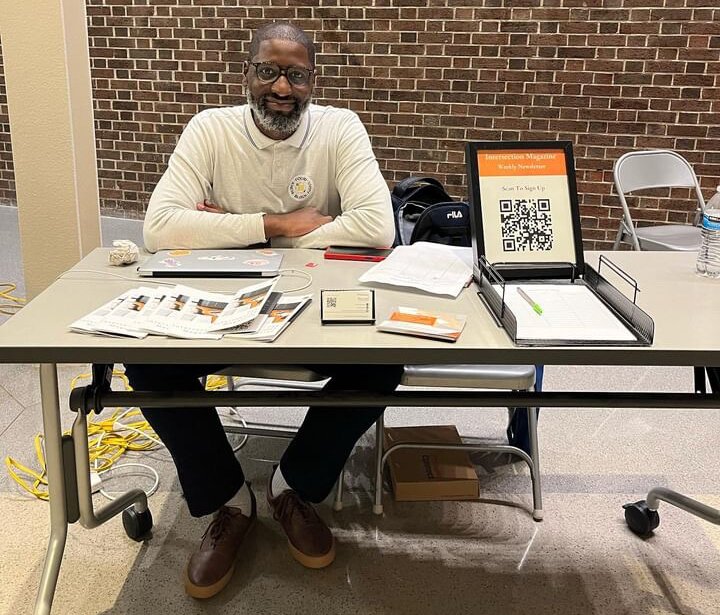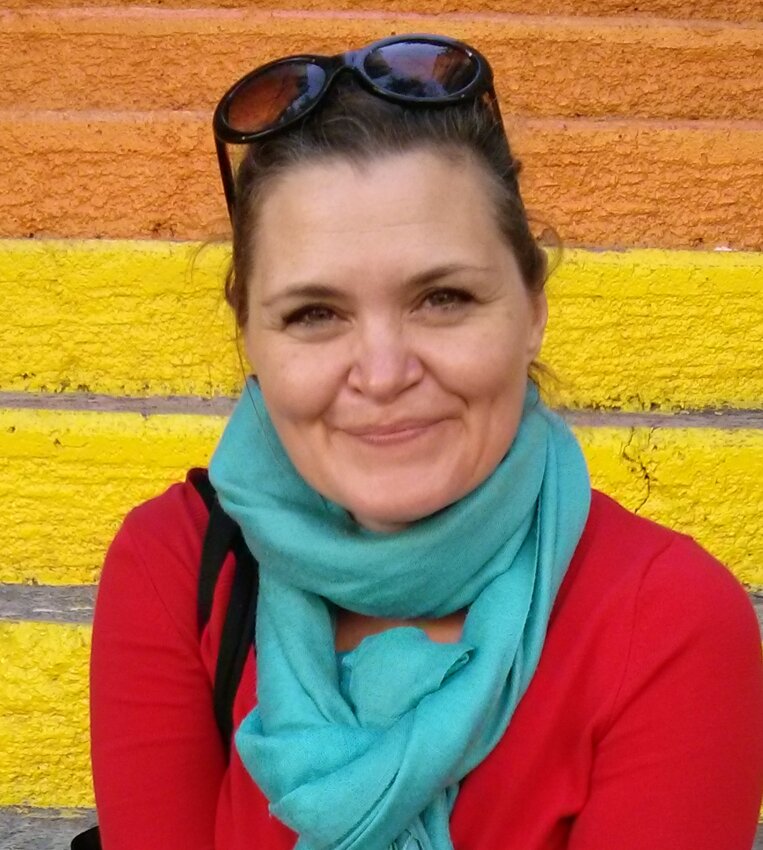If you visit the web page of The Intersection Magazine, you’ll notice something unique. The subject titles contain pairings: “PG Politics + Religion” and “Health + Politics.”
This is intentional, said its founder, Delonte Harrod: “As a Black reporter trained in the Black press, that is how Black people live their lives. I will say I think it’s universally how people live their lives. Traditional media reports listicles. So, it’s Politics, Business and Sports. Separated. And that’s not actually how reality works. In Black communities, Black people are heavily religious. And they are involved in politics. So, what does it look like to report on the intersection or convergence of all these things? That’s what I’ve started to do.”
Harrod, a former Maynard Institute Fellow, launched his digital magazine as a Medium site in 2018 to report hyper-locally in Prince George’s County, Maryland. In 2021, he took the magazine to a new level when he was selected to be in that year’s LION Publishing Google News Initiative Startup Boot Camp. The Intersection is a LION Publishing member.
Since then, Harrod has worked to develop a close relationship with community members and activists to learn what issues they are taking on and where his reporting might amplify their concerns and the solutions they seek.
Harrod built out his social media presence to serve the people across the county with stories he said they are unlikely to find elsewhere. In addition to the magazine’s Facebook, X (aka Twitter) and Instagram accounts, Harrod credits NextDoor as a way to actively dialogue with his readers. He’s used the platform to conduct surveys and find stories.

Harrod regularly publishes civic meeting schedules and in-depth articles about community activism and its challenges. These stories are long-form, highly-reported narratives.
“I say I practice slow journalism,” Harrod says. “In my reporting, I try to center the human being,” he explained to E&P. “I got my start in the Black press, and we don’t just cover events. We report on the history — the context — to tell a full story of what people have experienced and how they came to where they are.”
One report Harrod points to is a story that came to him when a family reached out to him because a young mother was being held in pretrial detention after having given birth. The family explained the jail wasn’t giving the young mother the supplies she needed to pump her breast milk. She needed to send it to her grandmother, who was caring for her child while she was incarcerated. Harrod said the family wasn't aware that withholding those resources was against Maryland state law. His reporting aided them in getting the services she needed and helped the family arrange for the woman’s release from pretrial detention to be with her child until her trial date.
Harrod is working to fortify the business side of the digital magazine and will soon get revenue-generating and supportive services from a Canadian firm, Indiegaf, as part of their efforts to support small, diverse publications to achieve sustainability.
Harrod says he has his eyes on some next-stage goals to hire a reporter and maybe one day have an investigative unit. “It’s so important at a local level to dig into local government to see how and why things are the way they are.”
His long-term ambitions include building a training program for young people to learn local reporting. “I never wanted to be a national reporter. I really think the best work is doing local reporting. And I’d love to see more people have the chance to learn how to do it for their own community.”
 Diane Sylvester is an award-winning 30-year multimedia news veteran. She works as a reporter, editor and newsroom strategist. She can be reached at diane.povcreative@gmail.com
Diane Sylvester is an award-winning 30-year multimedia news veteran. She works as a reporter, editor and newsroom strategist. She can be reached at diane.povcreative@gmail.com
Comments
No comments on this item Please log in to comment by clicking here